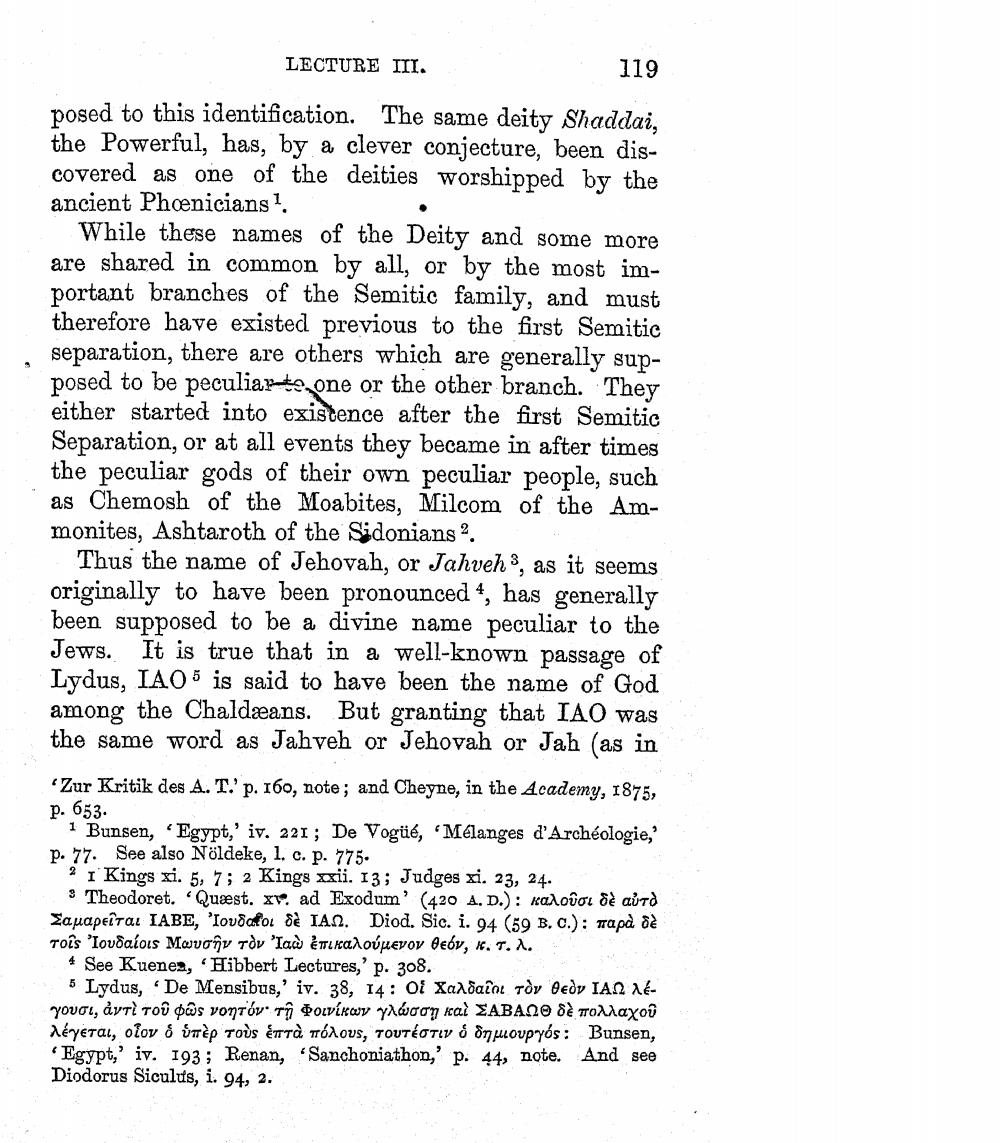________________
LECTURE III.
posed to this identification. The same deity Shaddai, the Powerful, has, by a clever conjecture, been discovered as one of the deities worshipped by the ancient Phoenicians 1.
•
119
While these names of the Deity and some more are shared in common by all, or by the most important branches of the Semitic family, and must therefore have existed previous to the first Semitic separation, there are others which are generally supposed to be peculiar to one or the other branch. They either started into existence after the first Semitic Separation, or at all events they became in after times the peculiar gods of their own peculiar people, such as Chemosh of the Moabites, Milcom of the Ammonites, Ashtaroth of the Sidonians 2.
Thus the name of Jehovah, or Jahveh3, as it seems originally to have been pronounced 4, has generally been supposed to be a divine name peculiar to the Jews. It is true that in a well-known passage of Lydus, IAO is said to have been the name of God. among the Chaldæans. But granting that IAO was the same word as Jahveh or Jehovah or Jah (as in
"Zur Kritik des A. T.' p. 160, note; and Cheyne, in the Academy, 1875, p. 653.
1 Bunsen, Egypt,' iv. 221; De Vogüé, 'Mélanges d'Archéologie,' p. 77. See also Nöldeke, 1. c. p. 775.
2 1 Kings xi. 5, 7; 2 Kings xxii. 13; Judges xi. 23, 24.
Theodoret. Quæst. xv. ad Exodum' (420 A. D.): kalovoi de aurd Σαμαρεῖται ΙΑΒΕ, Ἰουδαῖοι δὲ ΙΑΩ. Diod. Sic. i. 94 (59 B. c.): παρὰ δὲ τοῖς Ἰουδαίοις Μωυσῆν τὸν Ἰαὼ ἐπικαλούμενον θεόν, κ. τ. λ.
* See Kuenez, 'Hibbert Lectures,' p. 308.
5 Lydus, “De Mensibus,” iv. 38, 14: Οἱ Χαλδαῖοι τὸν θεὸν ΙΑΩ λέγουσι, ἀντὶ τοῦ φῶς νοητόν· τῇ Φοινίκων γλώσσῃ καὶ ΣΑΒΑΩΘ δὲ πολλαχοῦ λέγεται, οἷον ὁ ὑπὲρ τοὺς ἑπτὰ πόλους, τουτέστιν ὁ δημιουργός: Bunsen, Egypt,' iv. 193; Renan, 'Sanchoniathon,' p. 44, note. And see Diodorus Siculus, i. 94, 2.




